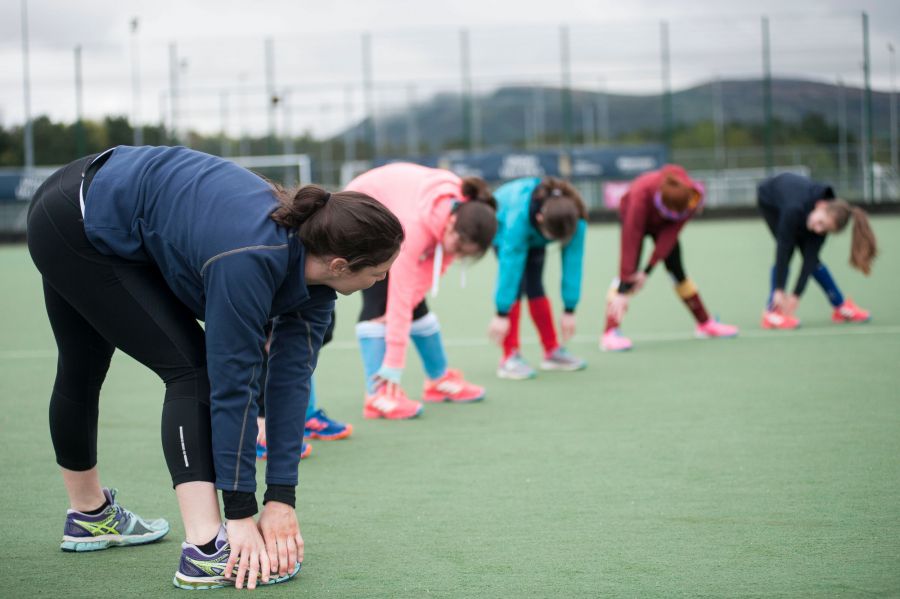Page content
Impact
Research into physical activity and heath at Ulster University has had wide-reaching influence in setting public health guidelines in the UK and worldwide.
The contributing research into the health effects of brisk walking, directly led the UK government to develop App technology to encourage inactive people to exercise more.
Professor Murphy led an expert group tasked with reviewing evidence for the benefits of activity in adults. The results of the review were then used to update the UK’s public health guidelines for physical activity (2019) and in the UK’s COVID-19 messaging and communication. Ulster’s research has also been used as evidence in the setting of international physical activity guidelines in the USA and the Netherlands.
Research conducted at Ulster revolved around the duration, frequency and type of exercise required to improve health. Our research has played a major part in informing public health physical activity guidelines worldwide, and has shaped interventions designed to increase population level physical activity.
Specifically, Ulster’s research into the differing types of exercise, their duration and distribution, and contributions to health has directly influenced government guidelines for public health in the UK, USA and Netherlands.
The research has also been used to develop successful government-led initiatives for encouraging people to be more active. For example, the Active 10 App encourages people to undertake at least 10 minutes of brisk walking per day, with the expectation that once 10 minutes of brisk walking was achieved, those individuals would then continue for longer periods, and more frequently. A free to download App via the UK’s National Health Service website, Active 10 allows users to track their walking over a week or longer, while providing encouragement in the form of motivational messages.
Ulster’s research also contributed to the wording for COVID-19 related public health messaging to ensure a consistent physical activity approach across the four UK nations. This was a set of evidence-based COVID-19 physical activity messages for the UK Chief Medical Officer’s to use as part of their briefings and communication with the media and public.

The health benefits derived from physical activity impact not only the individual, but also wider society and the economy. Evidence shows that regular physical activity reduces risk of, and can help manage approximately 20 non-communicable diseases or conditions, including heart disease, stroke, type 2 diabetes, obesity, breast and colon cancer, and hypertension. In addition, physical activity contributes to improved mental health, increasing mood, wellbeing and quality of life, reducing depression, and preventing cognitive decline including dementia.
Physical inactivity is the fourth leading cause of death worldwide, and estimated to be responsible for 16.6% of all deaths in the UK, costing the NHS GBP0.9bn per year. Physical inactivity is a target of many public health interventions, and a starting point for such interventions is an understanding of the duration, frequency and type of exercise required to improve health, and the development and dissemination of evidence-based physical activity guidelines.

Please consult with ICS for exhaustive list. The sources below support the above text.
- UK Physical Activity Guidelines (2019)
- NHS Active 10 App (Murphy provided evidence review and consulted on functions incorporated in app).
- Letter from Chief Medical Officer, Department of Health, England.
- Letter from Chief Medical Officer, Department of Health, Northern Ireland.
- Paper describing the development and dissemination of the NHS Active 10 app: Brannan et al. Active 10 – A new approach to increase physical activity in inactive people in England, Prog Cardiovasc Dis. Mar-Apr 2019; 62(2):135-139. doi: 10.1016/j.pcad.2019.02.001.
- Paper analysing Active 10 app user experience/benefits: Ciravegna et al. Active 10: Brisk walking to support regular physical activity. In: Proceedings of 13th EAI International Conference on Pervasive Computing Technologies for Healthcare. PervasiveHealth 2019. ACM, pp. 11-20. ISBN 978-1-4503-6126-2.
- Evidence of influence on national physical activity guidelines beyond the UK: Dutch and USA:
- Paper cited by the Dutch Physical Activity Guidelines (Reference 22 on page 10) Weggemans, R. M., et al (2018). The 2017 Dutch physical activity guidelines. International Journal of Behavioural Nutrition and Physical Activity, 15(1), 58.
- Paper cited by the US Physical Activity guidelines (Reference 32 on Page F1-25) https://health.gov/paguidelines/second-edition/report/?
- COVID-19 Physical Activity Guidance Messaging and Communication.



















